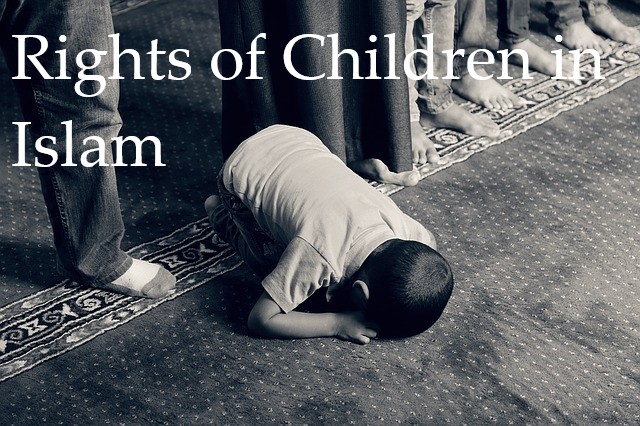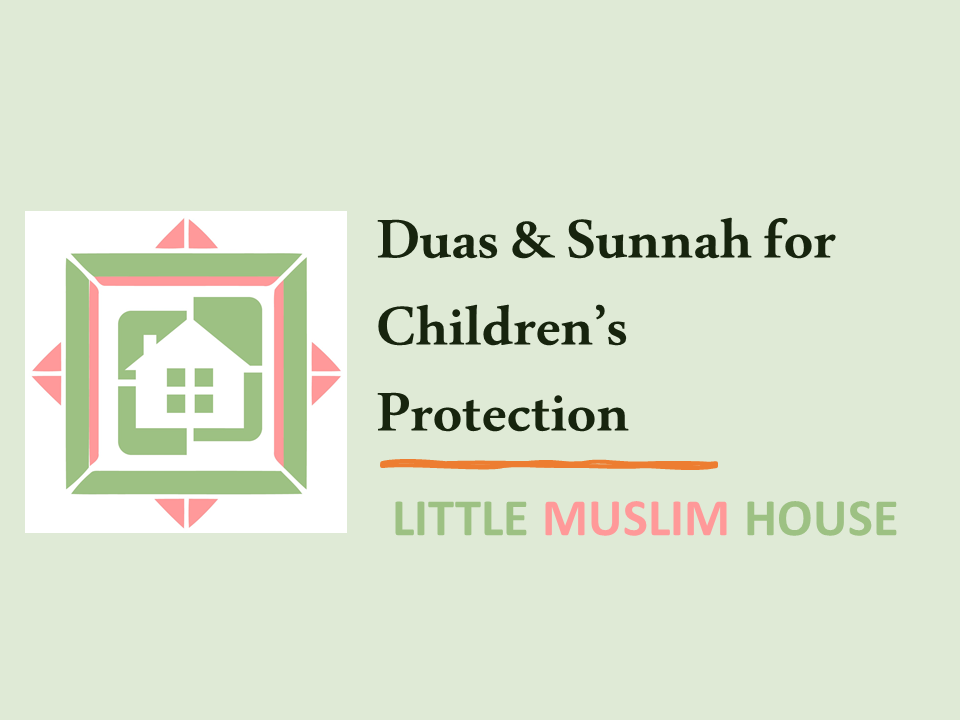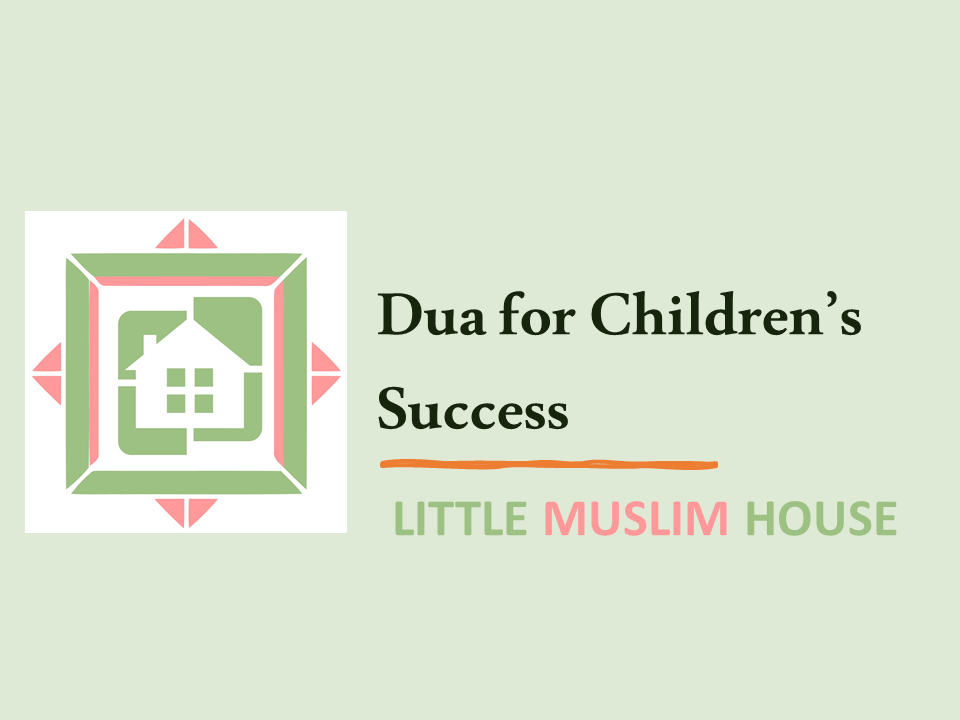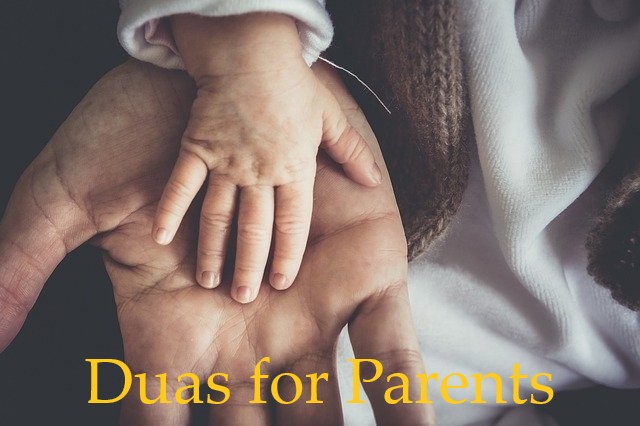Respecting and caring for one’s parents has been recurrently stressed in the Quran and Sunnah. From uttering kind words to looking into their well-being in their old age, Islam clearly lays out the many obligations that children have towards their parents. Likewise, Islam, the absolute guide to everyday life, does not fail to emphasize the duties and responsibilities that parents have towards their children. Prophet Muhammad (PBUH) is reported to have said:
“… and your child has rights over you.” [Muslim]
According to Islam, the rights of children begin prior to birth.
Rights of a child before birth
A righteous mother who is capable of taking care of the child, teaching him/her good Islamic values, morals and etiquettes is the first right of any child.
RasulUllah (PBUH) said: “A woman may be married for four things: Her wealth, her lineage, her beauty or for her religion. Choose the religious, may your hands be rubbed with dust (i.e., may you prosper).” [Sahih Muslim]
Rights of a child post birth
“Beware. every one of you is a shepherd and every one is answerable with regard to his flock. The Caliph is a shepherd over the people and shall be questioned about his subjects (as to how he conducted their affairs). A man is a guardian over the members of his family and shall be questioned about them (as to how he looked after their physical and moral well-being). A woman is a guardian over the household of her husband and his children and shall be questioned about them (as to how she managed the household and brought up the children). A slave is a guardian over the property of his master and shall be questioned about it (as to how he safeguarded his trust). Beware, every one of you is a guardian and every one of you shall be questioned with regard to his trust.” [Sahih Muslim]
The basic responsibilities that parents have towards their children are listed below:
Selecting a meaningful name for the child
The Messenger of Allah (PBUH) said:
“Call yourselves by the names of the Prophets. The names dearest to Allah are Abdullah and Abdur Rahman, the truest are Harith and Hammam, and the worst are Harb and Murrah.” [Sunan Abi Dawud]
A name is an identity a child would carry throughout their life. Names that communicate a deep meaning or those that are names of the Prophets of Allah or Sahabas’ would be profoundly favorable. Teaching children the wisdom, depth, or personalities from which their names were derived from would certainly inspire the little one to live up to it.
Giving the child a comprehensive education
It is incumbent upon parents to provide a good education to their children, irrespective of their gender. A good education goes beyond the formal education that children receive at schools and universities, but transcends to the religious obligations and values, as well as social morals and etiquettes that children desperately need to function well in this life as well as the next.
Reinforcing good manners and characteristics from a tender age is the duty of both parents. Disciplining them and reprimanding them when they err and inculcating in them that all behaviors have consequences is absolutely imperative. Being kind and empathetic towards others’ needs and feelings, helping those in need, respecting other people and their religions, standing up for what is right, etc. are few attributes that children ought to be taught. This not only helps them be aware of themselves but also helps them interact well with others, and model the behaviors that make a good Muslim.
Even more important is a good Islamic education. The Messenger of Allah (PBUH) said:

“Command your children to pray when they become seven years old, and lightly beat them for it (prayer) when they become ten years old; and arrange their beds (to sleep) separately.” [Sunan Abi Dawud]
By the age of seven, when some level of understanding has been reached, Muslim children’s formal religious education commences. Parents should take the initiative to teach their little ones about Allah and his many beautiful creations, the Holy Quran, the Prophets, good and bad deeds, as well as the basics of Salah, fasting and Hajj pilgrimage.
Fulfilling financial obligations and treating children fairly
It is incumbent upon fathers as the breadwinners of the family to fulfill their financial obligations towards their children. Shelter, food, clothing, medicine, and education are few of the most basic undertakings that a father should shoulder for his children. To neglect this is a great sin, as the Prophet (PBUH) stated:
“It is sufficient sin for a man if he neglects those on whom he is obliged to spend.” [Abi Dawud]
Treating Children Fairly
Treating children equally and avoiding favoring one child over the other is a general rule that all mothers and fathers should ensure to follow. The Prophet of Allah PBUH has said in this regard:
“Treat your children fairly, treat your children fairly.” [Sunan An-Nasai]
The same applies when buying gifts for children:
I heard An-Nu`man bin Bashir on the pulpit saying, “My father gave me a gift but `Amra bint Rawaha (my mother) said that she would not agree to it unless he made Allah’s Messenger (ﷺ) as a witness to it. So, my father went to Allah’s Messenger (ﷺ) and said, ‘I have given a gift to my son from `Amra bint Rawaha, but she ordered me to make you as a witness to it, O Allah’s Messenger (ﷺ)!’ Allah’s Messenger (ﷺ) asked, ‘Have you given (the like of it) to everyone of your sons?’ He replied in the negative. Allah’s Messenger (ﷺ) said, ‘Be afraid of Allah, and be just to your children.’ My father then returned and took back his gift.” [Sahih al-Bukhari 2587]
Tahneek
Tahneek is the rubbing of dates—masticated by a pious person, or honey on the lips or palate of a newborn. This was a noble practice of the Prophet (PBUH). While some uphold this practice to this day, others have abandoned it asserting that it is a practice reserved solely for the Prophet (PBUH) and no other, as his saliva contained healing properties and was beneficial for the child.
Abu Musa said: “A child was born in my house and I brought him to Allah’s Apostle (PBUH) and he gave him the name of Ibrahim and he rubbed his palate with dates. [Sahih Muslim]
Shaving the child’s head and slaughtering an animal on the seventh day
Prophetic tradition deems that the newborn’s head, girl or boy, be shaved on the seventh day after birth. Thereafter, gold or silver equivalent to the weight of the baby’s hair should be given in charity.
Amr bin Shu’aib narrated that the Prophet (PBUH) ordered naming the child on the seventh day, removing the harm from him, and Al-‘Aqq (removing the hair and slaughtering the animal for ‘Aqiqah). [At-Tirmidhi]
Aqiqah, or slaughtering an animal, could also be done on the same day. As the hadeeth below states, the family is expected to sacrifice two sheep for a boy, whereas one sheep for a girl. The meat can be then distributed among friends, family and poor.
Aishah narrated: “The Messenger of Allah (PBUH) commanded us to sacrifice two sheep for a boy’s ‘Aqiqah and one sheep for a girl.”[Sunan Ibn Majah]
Additionally, circumcision, showing love and compassion through words and actions, as well as finding a suitable spouse when the child reaches marriageable age are also important obligations that parents should ensure to uphold.
Children are a blessing from Allah and children who practice good values and morals are undoubtedly a blessing to their community. Therefore, it is the duty of both parents to model appropriate behaviors and ensure that their children are given their proper rights since before their birth.




